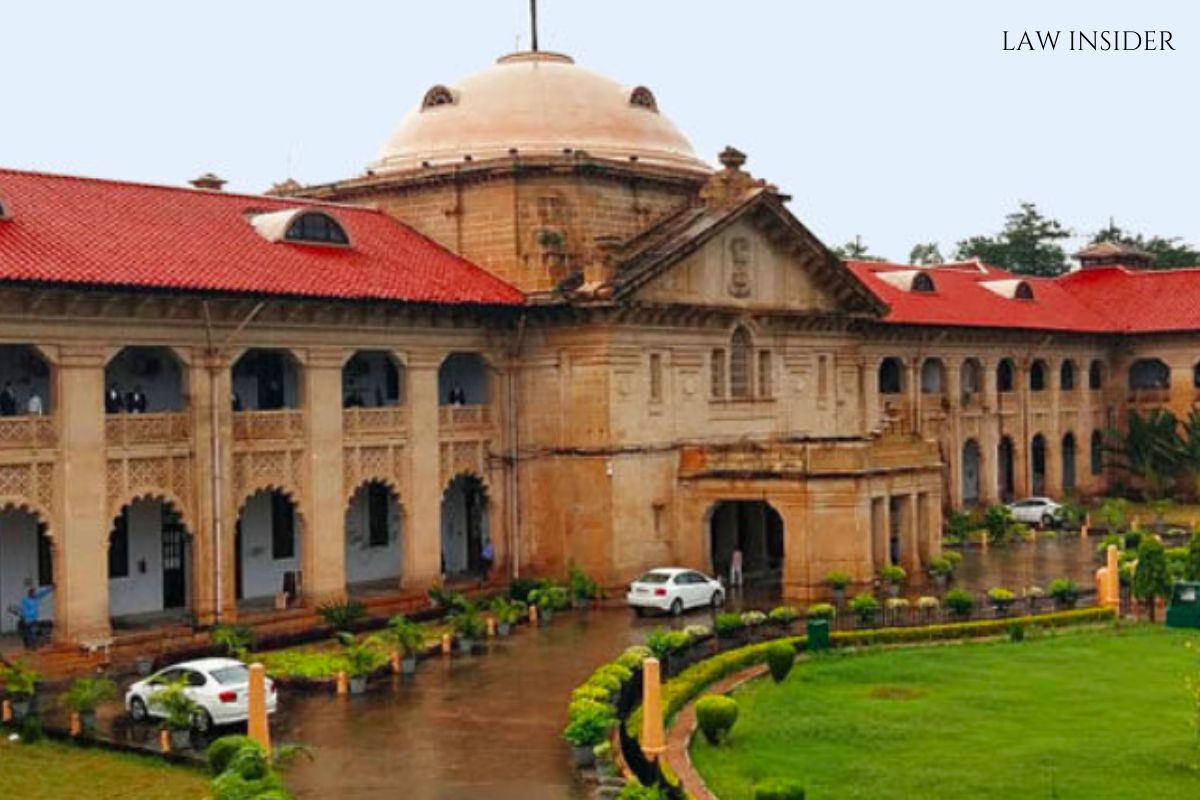LI Network
Published on: 28 August 2023 at 16:02 IST
The Allahabad High Court has emphasized that the initiation of a limitation period remains unaffected by any external influence except through the application of legal provisions.
The judicial panel, comprising Justices Rajan Roy and Saurabh Lavania, was addressing a review plea brought under Rule 12, Chapter V of the Allahabad High Court Rules, 1952, in conjunction with Section 114/151 of the Civil Procedure Code (C.P.C.).
This plea pertained to a prior verdict and order wherein the Allahabad High Court had dismissed a petition contesting a directive from the U.P. State Public Services Tribunal. This tribunal was established under the U.P. Public Service (Tribunal) Act of 1976.
The case under consideration involved disciplinary proceedings initiated against an applicant, conducted in adherence to the 1999 Rules.
The proceedings’ course of action, as evident from the records, aligned with the stipulations outlined in Rule 7 of the 1999 Rules.
The applicant, in response to a disciplinary action that led to a censure entry and cast doubts on their integrity, pursued an appeal that was subsequently deemed inadmissible due to exceeding the prescribed limitation period.
Advocate Sri Rama Kant Dixit, representing the applicant, contended that the claim petition, stemming from an appellate authority’s decision on an appeal filed by the petitioner, remained within the permissible timeframe.
The argument rested on the assertion that the petitioner’s filing adhered to Rule 11 of the U.P. Government Servant (Discipline and Appeal) Rules, 1999, challenging the penalty imposed on 20.03.2015. Consequently, the review petition asserted that the Allahabad High Court should have intervened against the tribunal’s ruling, but instead, the initial writ petition was dismissed, warranting consideration of the review application.
The High Court’s analysis pointed out that if an appeal, challenging a punitive “order,” as issued by the Disciplinary Authority, was not resolved in compliance with Sub-section 6 of Section 4 of the U.P. Public Service (Tribunal) Act, 1976, the aggrieved public servant had the option to approach the tribunal directly. However, in this instance, the appeal had not been submitted strictly according to Rule 11.
The bench concluded that the Appellate Authority correctly declined the appeal due to its time-barred nature. Rule 11 of the 1999 Rules conferred no authority to waive the delay in submitting an appeal, which was confined to a stipulated limitation period of 90 days.
It was observed that the initiation of a limitation period could solely be curtailed through the legal framework, with no external factors impinging upon it.
In the context of the present case, the period for appealing the Appellate authority’s decision commenced on 20.03.2015 (the date of the Disciplinary Authority’s order), and the appeal, as prescribed by Rule 11, was submitted over a year after the stipulated 90-day period.
Consequently, the span from 20.03.2015 to 25.01.2017 could not be disregarded under Section 5(1)(b)(ii) for tribunal approach, pertaining to the challenge against the order of 23.03.2015. Ergo, the claim petition contesting the 20.03.2015 order was unmistakably time-barred.
The bench further clarified that this was not a scenario where an appealed punishment order, under Rule 11 of the 1999 Rules, was partially or wholly upheld, which could have led to the exclusion of the appeal’s pendency period from limitation calculations. Instead, it was a case of an appeal being filed beyond the stipulated limitation, contravening Rule 11.
Therefore, the pendency period of the appeal did not extend, stop, or affect the limitation calculation. The calculation began from the date of the original punishment order, i.e., 20.03.2015.
The High Court emphasized that as for challenging the mentioned order, the claim petition filed in 2017 was unequivocally time-barred, given the one-year constraint from 20.03.2015. Concerning the appellate order of 25.01.2017, the claim petition was within the statute of limitations, yet its scope was confined to assessing the validity of the appellate order solely on the grounds of limitation, not merits.
The Tribunal’s jurisdiction was limited to scrutinizing whether the dismissal of the appeal based on limitation was correct.
Consequently, the bench dismissed the petition titled “Ajai Kumar Singh v. State Public Services Tribunal Lucknow.”
This legal pronouncement reaffirms the principle that, once initiated, a limitation period remains inviolable except when governed by the legal framework.

